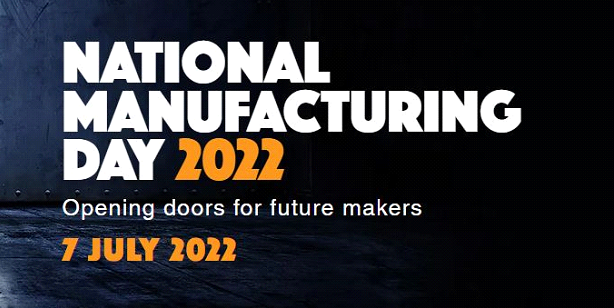 SMEs are an integral part of the UK’s manufacturing landscape. Accounting for over 90 per cent of all manufacturing businesses, SMEs contribute 25 per cent of GDP each year and play a crucial role in the export of billions of pounds of goods to Europe and beyond.
SMEs are an integral part of the UK’s manufacturing landscape. Accounting for over 90 per cent of all manufacturing businesses, SMEs contribute 25 per cent of GDP each year and play a crucial role in the export of billions of pounds of goods to Europe and beyond.
 Yet, surprisingly, manufacturing SMEs are greatly undervalued in society. Most people outside the sector don’t recognise the work that small manufacturing businesses complete or the substantial contribution they make to our everyday lives.
Yet, surprisingly, manufacturing SMEs are greatly undervalued in society. Most people outside the sector don’t recognise the work that small manufacturing businesses complete or the substantial contribution they make to our everyday lives.
So, how are SMEs vital to both the UK economy and society?
Precision Engineering That Spans Every Part Of Society
Advanced technologies are an intrinsic part of our everyday life but, often, we don’t always see the highly specialised equipment that underlies them. From the exquisitely engineered medical devices that are essential to safe operations, to tiny components that are critical parts in commercial airliners and the cars we drive every day, precision engineering plays a vital role in many areas of our lives.
Few consumer devices are made entirely by a single manufacturer; instead, even large corporate manufacturers rely on specially machined components produced by a complex network of SMEs, without who the entire design and build process would cease.
A Steadying Hand During Times Of Crisis
The Pandemic demonstrated the vulnerability of global supply chains, resulting in worldwide shortages of many appliances, from gaming consoles to ventilators. Now, the war in Ukraine, accompanied by economic sanctions on Russia, is threatening production lines across the world.
During times of crisis, manufacturing SMEs can play a crucial role in fixing and bridging supply chain problems. When large manufacturing companies cannot fulfil orders directly, outsourcing precision engineering to SMEs can plug the gaps, ensuring that deadlines are met.
Career Opportunities For Young People
Job security is much sought after in modern society, particularly with rising utility costs and property prices. The Government’s expansion of its apprenticeship scheme was supposed to yield increased opportunities for school leavers to embark on a rewarding skills-based profession, with manufacturing offering competitive salaries and long-term stability for engineers. However, as Rishi Sunak alluded to in his Spring Statement, the Apprenticeship Levy and it’s processes need urgent review.
Unfortunately, even if the apprenticeship scheme offering is fixed, the public perception of engineering as a career option is still soured by negative and inaccurate connotations. Young people, influenced by misrepresentations of engineering in the media, often steer away from the profession; consequently, even at GCSE level, the number of students taking engineering as an option is dropping year-on-year.
Addressing The Future Of Manufacturing
SMEs already play a crucial role in the UK economy and society and, with the right investment and commitment from the Government, even more could be achieved in years to come.- Government funding should be directed more incisively to areas of need to avoid misspending.
- Manufacturing SMEs should be lauded for their contributions to society: high levels of employment, job security, economic prosperity, and important innovations in all walks of life.
- Measures to protect SMEs in the future should be introduced, with greater guidance and more investment for training and skills development.
Find Out More
This article is based, in part, on a recent interview of our Director, Andrea Wilson by Miranda Birch, in which they discussed topics ranging from reshoring and apprentices, to bridging the skills shortage and gender imbalance in manufacturing. Listen to the full interview below.





